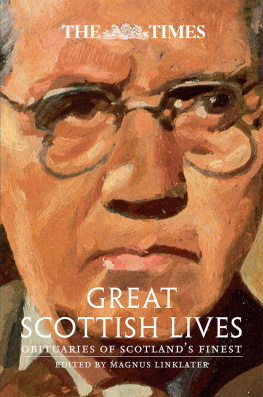Lord Kitchener
5 June 1916
Horatio Herbert Kitchener was born at Gunsborough House, near Listowel, in County Kerry, on June 24, 1850. He was the second son of Lieutenant-Colonel H. H. Kitchener, of Cossington, Leicestershire, by his marriage with Frances, daughter of the Rev. John Chevallier, dd , of Aspall Hall, Suffolk, and was therefore of English descent though born in Ireland.
He was educated privately by tutors until the age of 13, when he was sent with his three brothers to Villeneuve, on the Lake of Geneva, where he was in the charge of the Rev. J. Bennett. From Villeneuve, after some further travels abroad, he returned to London, and was prepared for the Army by the Rev. George Frost of Kensington Square. He entered the Royal Military Academy at Woolwich in 1868 and obtained a commission in the Royal Engineers in January, 1871. During the short interval between passing out of Woolwich and joining the Engineers he was on a visit to his father at Dinan, and volunteered for service with the French Army. He served under Chanzy for a short time, but was struck down by pneumonia and invalided home. He now applied himself vigorously to the technical work of his branch, and laboured incessantly at Chatham and Aldershot to succeed in his profession.
Palestine and Cyprus
His first chance of adventure arose owing to a vacancy on the staff of the Palestine Exploration Society. Kitchener was offered the post in 1874 and at once accepted it. He remained in the Holy Land until the year 1878, engaged first as assistant to Lieutenant Conder, re , in mapping 1,600 square miles of Judah and Philistia, and then in sole charge during the year 1877 surveying that part of Western Palestine which still remained unmapped. The work was done with the thoroughness which distinguished Kitcheners methods in his subsequent career. He rejoined Conder in London in January, 1878, and by the following September the scheme of the Society was carried through, and a map of Western Palestine on a scale of one inch to a mile was satisfactorily completed. The work entailed considerable hardship, and even danger. Kitchener suffered from sun-stroke and fever. He and his surveying parties were frequently attacked by bands of marauders, and on one of these occasions both Conder and he barely escaped with their lives. On another occasion Kitchener pluckily rescued his comrade from drowning. His survey work in Palestine led directly to his nomination for similar work in Cyprus, where he began the map of the island which was eventually published in 1885.
Egypt and the Red Sea
Realising that trouble was brewing in Egypt, Kitchener managed to be at Alexandria on leave at the time of Arabis revolt. He served through the campaign of 1882, and, thanks largely to his knowledge of Arabic, became second in command of the Egyptian Cavalry when Sir Evelyn Wood was made Sirdar of the Egyptian Army. He left Suez in November, 1883, to take part in the survey of the Sinai Peninsula, but almost immediately returned for service in the Intelligence branch. He was sent southward after the defeat of Hicks Pasha in order to win over the tribes and prevent the further spread of disaffection. His personality and influence did much. The Mudir of Dongola in response to Kitcheners appeal, fell upon the dervishes at Korti and defeated them. But the tide of Mahdi-ism was still flowing strongly. By July, 1884, Khartum was invested, and upon Kitchener fell the duty of keeping touch between Gordon and the expedition all too tardily dispatched for his relief.
Kitchener was now a major and daa and qmc on the Intelligence Staff. In December, 1884, Wolseley and his troops reached Korti. Kitchener accompanied Sir Herbert Stewarts column on its march to Metemmeh, but only as far as Gakdul Wells, and consequently he was not at Abu Klea. When the expedition recoiled, it became Kitcheners painful duty to piece together an account of the storming of Khartum and the death of Gordon. For Kitcheners services in this arduous and disappointing campaign there came a mention in dispatches, a medal and clasp, and the Khedives star. In June, 1885, he was promoted lieutenant-colonel. In the summer the Mahdi died and the Khalifa Abdullahi succeeded him. Kitchener had resigned his commission in the Egyptian Army and had returned to England, but he was almost at once sent off to Zanzibar on a boundary commission and was subsequently appointed Governor-General of the Red Sea littoral and Commandant at Suakin in August, 1886. Here he soon found himself at grips with the famous Emir Osman Digna.
After some desultory fighting round Suakin Kitchener marched out one morning, surprised Osmans camp at Handont, and carried it with the Sudanese. But in the course of the action he was severely wounded by a bullet in the neck, and was subsequently invalided home. The bullet caused him serious inconvenience until it was at last extracted. In June, 1888, he became colonel and adc to her Majesty Queen Victoria, who had formed a high and just estimate of Kitcheners talents and ever displayed towards him a gracious regard. He rejoined the Egyptian Army as Adjutant-General, and was in command of a brigade of Sudanese when Sir Francis Grenfell stormed Osman Dignas line at Gemaizeh. Toski, in the following summer, was another success, and Kitcheners share in it at the head of 1,500 mounted troops won for him a cb .
Three less eventful years now went by while the Egyptian Army, encouraged by its successes in the Geld, grew in strength and efficiency. In 1892 Kitchener succeeded Grenfell as Sirdar, and in 1894 was made a kcmg .
The Reconquest of the Sudan
Lord Salisburys Government decided on March 12, 1896, that the time had come for a forward movement on the Nile. Their immediate object was to make a diversion in favour of Italy, whose troops had just been totally defeated by the Abyssinians at Adowa, but the natural impetus of the advance carried the Sirdar and his army eventually to Khartum. Kitchener was ready when the order to advance was given. He had 10,000 men on the frontier, rails ready to follow them to Kerma, and all preparations made for supply. At Firket he surprised the dervishes at dawn, and at a cost of only 100 casualties caused the enemy a loss of 800 dead and 1,000 prisoners. A period of unavoidable inactivity ensued to admit of the construction of the railway, the accumulation of supplies, and the preparation of a fleet of steamers to accompany the advance. Cholera ravaged the camp and sandstorms of a furious character impeded operations, but the advance was at last resumed, and after sharp fights at Hafir and Dongola, the latter town was occupied on September 23, and the first stage of the reconquest of the Sudan was at an end. Kitchener was promoted major-general, with a very good, but not yet assured, prospect of completing the work which he had begun so well.
From the various lines of further advance open to him Kitchener chose the direct line from Wady Halfa to Abu Hamed, and formed the audacious project of spanning this arid and apparently waterless desert, 230 miles broad, with a railway, as he advanced. The first rails of this line were laid in January, 1897, and 130 miles were completed by July. Abu Hamed was captured on August 7 by Hunter with a flying column from Merowi, and Berber on August 31. The remaining 100 miles of the desert railway were then completed. Fortune favoured Kitchener at this period. Water was found by boring in the desert, but the construction of the line was still a triumph of imagination and resource. There were risks in the general situation at this moment, for the position of the army was temporarily far from favourable. There was a specially difficult period towards the close of 1897, when large dervish forces were massed at Metemmeh and a dash to the north seemed on the cards. But the Khalifa delayed his stroke, and when in February, 1898, the Khalifas lieutenant Mahmud began to march to the north Kitchener was ready for him.









